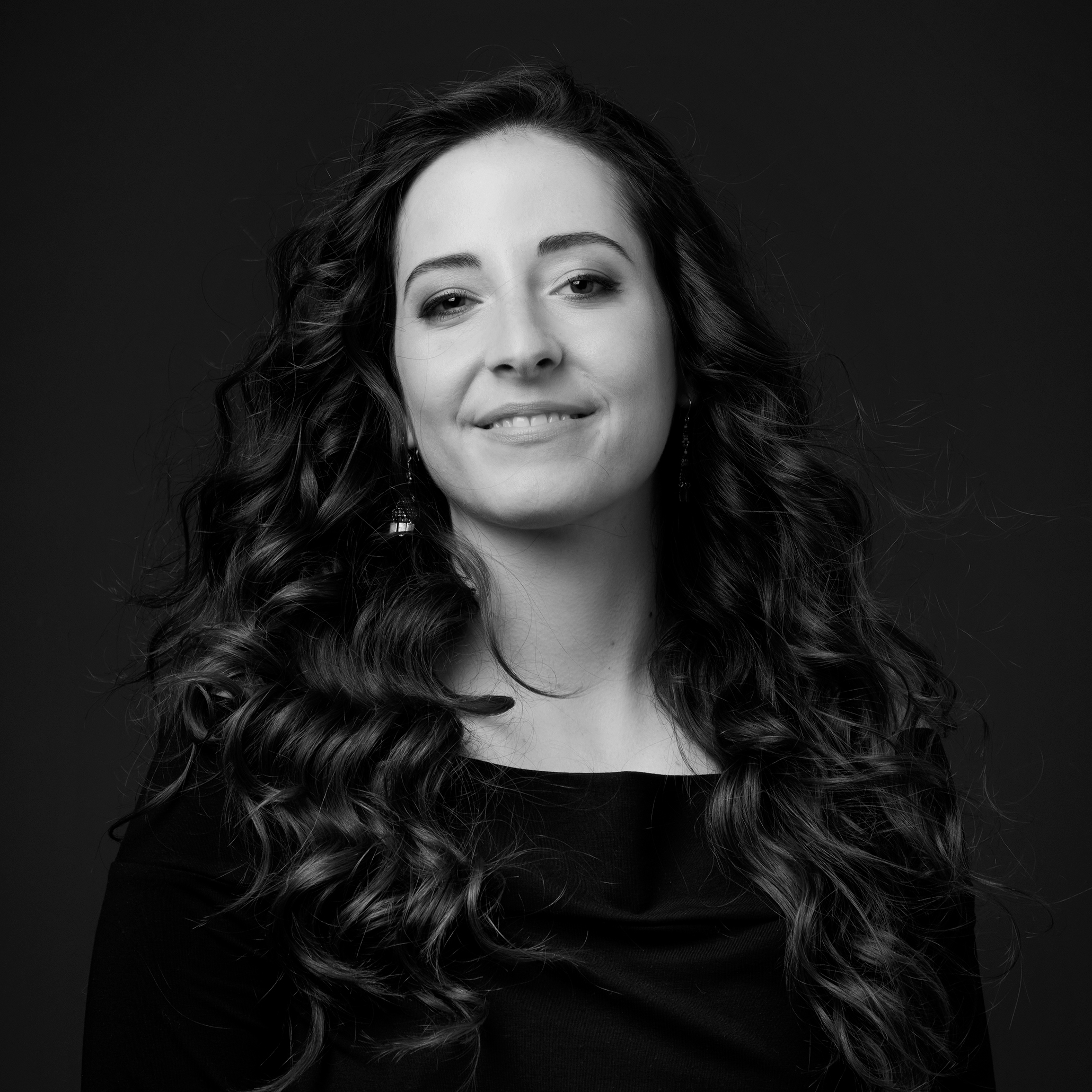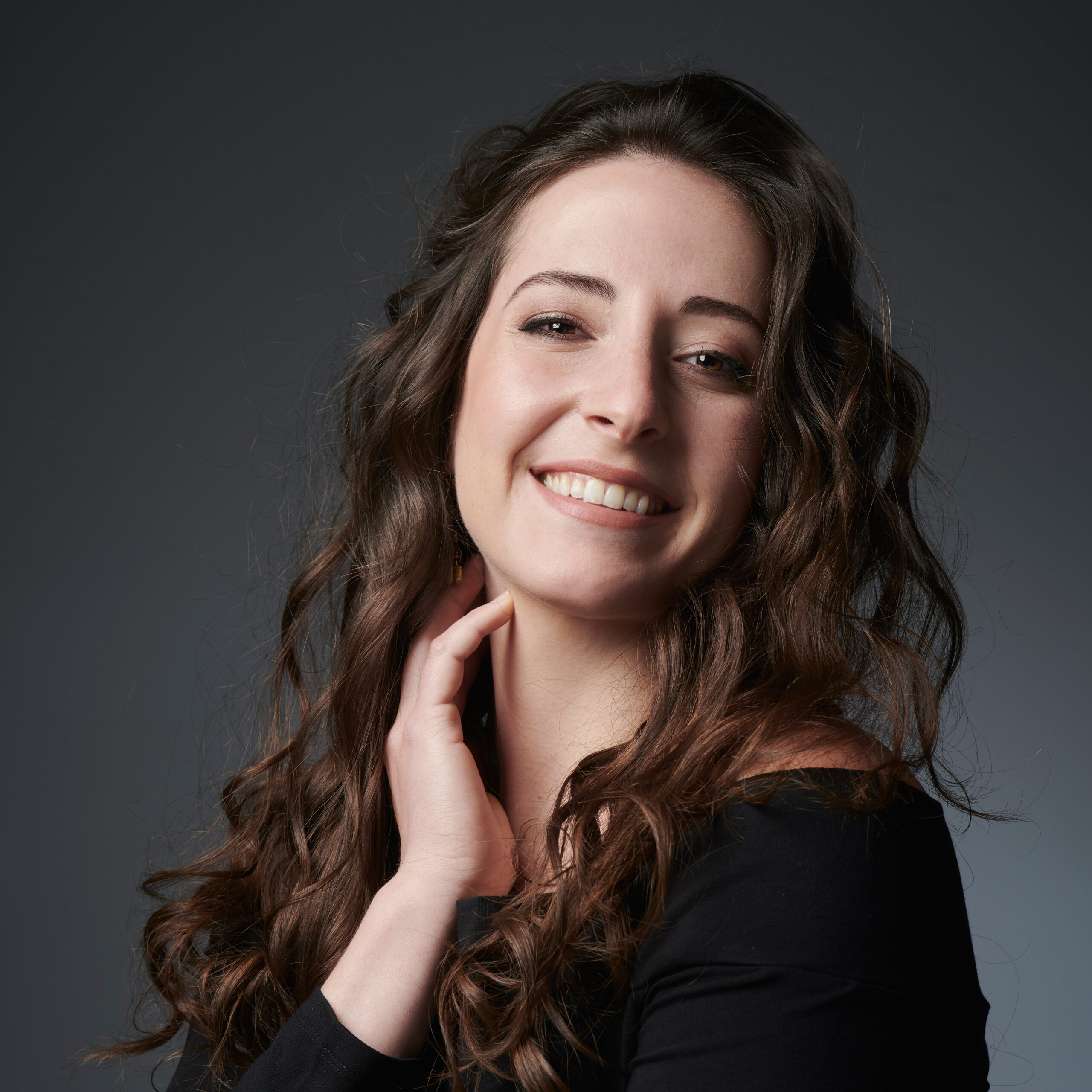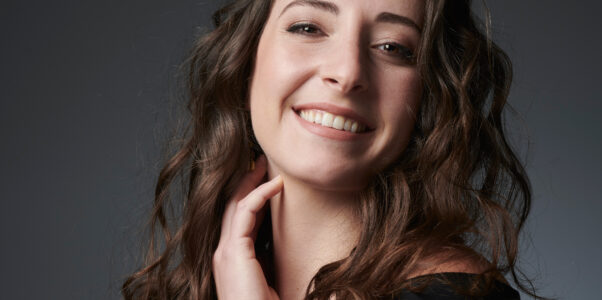
Gaia Alelí Szames
Gaia Szames is an Argentine soprano specializing in Early Music, based in Amsterdam, Netherlands. Her primary focus is Italian and French music from the 16th and 17th centuries. While her interests and explorations center on the polyphonic and monodic music of that period, her artistic versatility frequently leads her to participate in projects ranging from early medieval repertory to contemporary music.
Both as a soloist and ensemble singer, Gaia has collaborated with numerous conductors including Andres Locatelli, Adrian van Der Spoel, Eduardo Lopez Banzo, and Guy van Waas. She has performed diverse repertoires under distinguished artists such as Spanish and Latin American polyphony with Jonatan Alvarado, Italian Renaissance polyphony with Claron McFadden and Mike Fentross, 18th-century French music with Le Trèfle Fleuri, Polish and Spanish 20th-century songs with keyboardist Maciej Skrzeczkowski, and newly composed pieces with Izak de Dreu.
Gaia is a member of Al Canto de las olas, an ensemble devoted to Italian seicento repertoire. She is the new singer of La Primavera, the established ensemble with Maaike Boekholt on viola da gamba and Regina Albanez on theorbo. She is founder and director of Polysemía, an ensemble dedicated to madrigal performance, and a member of [H]Éros Ensemble, specializing in early baroque French repertoires. She regularly collaborates with soprano Claron McFadden, Mike Fentross (La Sfera Armoniosa), and De Amsterdamse Bachvereniging under Enrique López-Cortón. She has performed at festivals throughout Europe including Festival Oude Muziek Utrecht, Festival di musica Antica in Urbino, Generación SMADE, and FestiVita.
On stage, Gaia has performed as Euridice and La Musica in Monteverdi’s L’Orfeo, Belinda in Purcell’s Dido and Aeneas, and Alphise in Rameau’s Les Boréades. As a soloist, she has performed in Monteverdi’s Vespro della Beata Vergine, Pergolesi’s Stabat Mater, Mozart’s Requiem, Charpentier’s Te Deum, and Bach cantatas including Ich habe genug (BWV82a).
Her specialization in early repertoire began with her studies at the Conservatorio de Música Manuel de Falla in Buenos Aires. In 2020, she moved to Europe to study at the Conservatorium van Amsterdam under Xenia Meijer, where she obtained her Bachelor’s degree and is currently pursuing her Master’s. She has also completed the Master’s in Advanced Vocal Ensemble Studies (AVES) at the Schola Cantorum Basiliensis under Lisandro Abadie, Björn Schmelzer, Andrés Locatelli, and Stratton Bull. Gaia also currently studies singing with Margreet Honig and breathing technique with Diet Sijmons (the breath experience method).
Drawing from her work with exceptionally talented and inspiring teachers, Gaia has found teaching to be a deeply enriching practice. She guides each student through their personal development, offering clear explanations and practical tools while fostering confidence in their voice and creating a safe space to explore, breathe, and sing. She currently offers private singing lessons.

